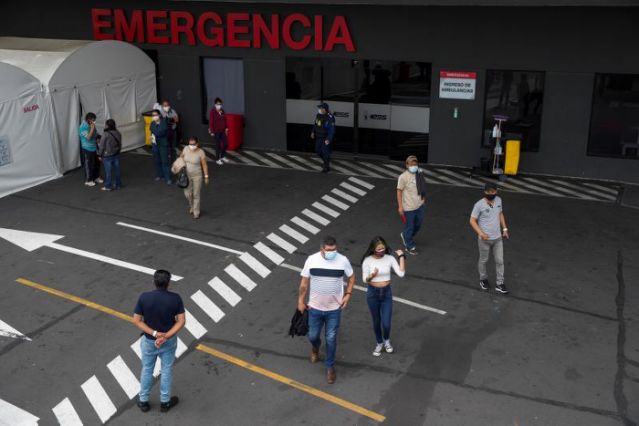RIO DE JANEIRO, BRAZIL – The president of Ecuador, Lenin Moreno, declared a state of exception due to public calamity due to the increase of COVID-19 infections in eight provinces of the country, in order to avoid overloading the health system.

In executive decree number 1,282, the president declared a state of exception in Azuay, El Oro, Esmeraldas, Guayas, Loja, Manabí, Pichincha and Santo Domingo de los Tsáchilas, which includes a curfew from April 2 to 9, from 8:00 p.m. to 5:00 a.m. local time.
Ecuador added in the last day 1,633 new cases of COVID-19 and accumulates 330,388 since records of the pandemic are kept, while deaths from the disease are counted in 16,877, 30 more compared to Wednesday, according to official data.
In recent weeks the country, home to 17 million people, has been experiencing a peak of infections with averages exceeding a thousand, and the Andean province of Pichincha, whose capital is Quito, has the highest incidence with 115,042 accumulated cases, followed by the coastal Guayas (Guayaquil), with 42,838.
The focused state of exception has a duration of 30 days and is adopted after the National Emergency Operations Committee (COE) recommended Thursday measures to curb contagions in light of the saturation in hospital capacity.
The curfew provided for in the state of emergency includes the prohibition to circulate in roads and public spaces in the provinces mentioned in the terms established by the National COE, which may extend the measure depending on the evolution of contagions.
The decree also determines that the scope of the limitation of the exercise of the right to freedom of association and assembly will be “solely for the purpose of avoiding gatherings and agglomerations which provoke an accelerated contagion”.
For this reason, an official Government communiqué specifies, the holding of all mass events and congregation in the eight provinces is prohibited.
Likewise, freedom of transit and mobility is restricted in the eight districts, with the exception of public and private health personnel, emergency and control services, strategic sectors, exporters and their logistic chain, basic services and waste collection, food suppliers, including their commercialization and transportation.
Exceptions to mobility restrictions
Workers related to the medicine and sanitary supplies industry, animal breeding and care, media, delivery platforms, diplomats, and international organizations accredited in the country and individuals in case of duly justified emergency, are also exempted from the mobility restriction, among other activities.
According to the decree, the Ministry of Public Health is in charge of strengthening the actions and mechanisms for the attention of the sanitary emergency in these provinces, and the National Service of Risk and Emergency Management shall coordinate the application of the measures together with the Decentralized Autonomous Governments.
The National Police, reads the document, “will remain vigilant of public order and compliance with the restrictions and limitations established”, while the Armed Forces will participate “in the re-establishment of public order in a complementary manner”.
Moreno decreed in March 2020, at the beginning of the pandemic in the country, a state of emergency that was extended several times until last September the Constitutional Court rejected its extension.
Likewise, last December he declared another similar measure to restrict crowds during the Christmas period, which was also rejected by the high court, which considered it unconstitutional.
Source: efe/afp/dw

